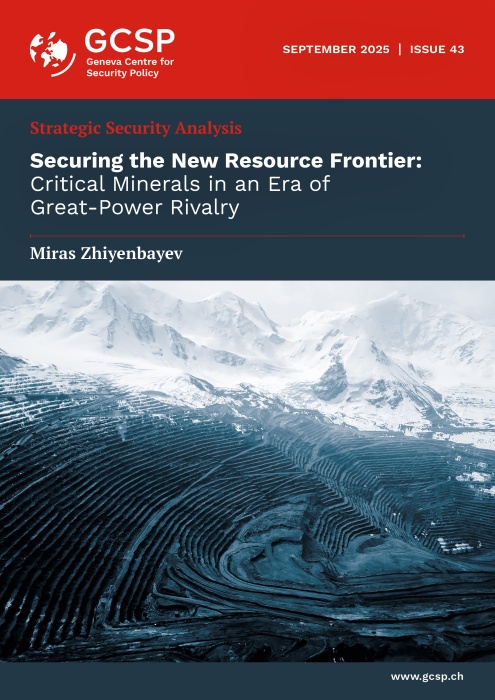Securing the New Resource Frontier: Critical Minerals in an Era of Great‑Power Rivalry
05 September 2025
Key points
- Critical minerals have become the 21st-century “oil”. Lithium, cobalt, rare earths, and other inputs for clean energy, semiconductors, and defence systems are now explicit levers of state power, as shown by China’s 2024- 2025 export controls and the scramble by the United States and its allies to secure alternative supplies.
- Geology drives geopolitics. These minerals are geologically fixed and highly concentrated (e.g. 70% of cobalt supplies come from the Democratic Republic of the Congo (DRC), while >80% of rare earth refining occurs in China), thrusting mostly developing producers into the centre of greatpower rivalry and exposing consumers to single-point failures.
- Diversification is stalling. Despite headline strategies, the top three countries now hold 86% of global refining capacity (up from 82% in 2020) and 77% of mining output. High capital costs, long lead times, and price volatility keep new entrants and new regions out of the market.
- Chokepoints create security risks. Export bans, accidents or conflict at any dominant node could trigger price spikes of 500- 0,000%, derail the energy transition and disrupt defence supply chains. Local instability, corruption and resource nationalism in producer states amplify this threat.
- Mineral competition is spilling into conflict zones. Examples range from Africa Corps-guarded mines in insurgency-afflicted African countries1 to rare earth fields in Kachin state amid Myanmar’s civil war and mineral-rich territories in war-torn Ukraine, illustrating how control of mineral deposits can fuel proxy struggles and interstate tensions.
- Middle powers are emerging as swing players in the competition for critical minerals. Countries such as Kazakhstan, Indonesia, and Brazil use “multi-alignment” policies to host multibloc investment, dilute monopolies, and promote rules-based trade – potentially protecting themselves from great-power coercion and promoting the diversification of critical minerals supply chains.
Disclaimer: The views, information and opinions expressed in this publication are the author’s own and do not necessarily reflect those of the GCSP or the members of its Foundation Council. The GCSP is not responsible for the accuracy of the information.


